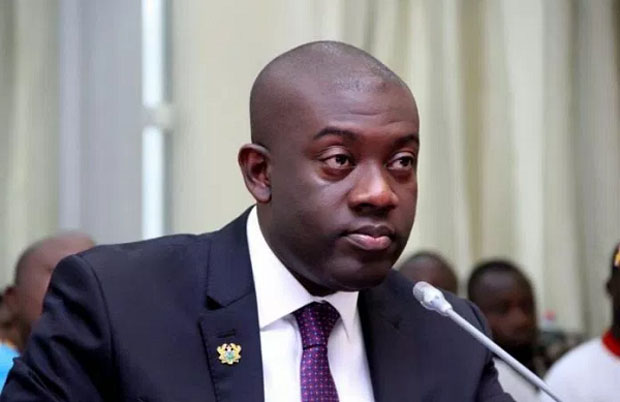
RTI Act will reduce rumour-mongering — Oppong Nkrumah
The Minister of Information, Mr Kojo Oppong Nkrumah, has said the implementation of the Right to Information (RTI) Act will reduce the incidence of speculation and rumour-mongering in media reportage.
He has, therefore, charged media practitioners to study the RTI Law as captured in Act 989, to help them obtain credible and factual information when it was implemented.
Advertisement
"The RTI has a number of benefits for us. It will ensure media persons go through necessary procedures to get access to factual information, credible information with which they can put out their stories to enable people to engage in the kind of quality conversation which can move our society forward,” the minister said.
Delivering a keynote address at a forum on “The role of the RTI Law in deepening media freedom”, in Accra yesterday, Mr Nkrumah said: “I hope the RTI will tone down speculation and rumour-mongering because you will now have procedures by which you can apply and get the information and put that fact in your story."
The forum was jointly organised by the Chevening Alumni Association of Ghana, in partnership with the Ghana Journalists Association (GJA) and the Media Foundation for West Africa (MFWA) on the theme: "Our voices must be heard".
Benefits
Mr Oppong Nkrumah said contrary to the erroneous impression that the RTI Bill was passed into law specifically to make the work of media practitioners easy, the law had immense benefits for all segments of the Ghanaian society.
"I think sometimes people erroneously think that the RTI Act is to make the work of media people easier, I beg to differ. The RTI Act is for all persons, citizens or non-citizens functioning within this democracy and it is to give a procedure by which you access your right to information in Article 21 (1) (f) in the 1992 Constitution,” the minister added.
He said the law would also enable the academia to access information for research purposes.
The minister further said there was no effort or attempt to roll back the freedom of expression that existed in the country.
He said the Ghanaian Press was free to publish what they deemed fit ahead of time without any controls or threats by the government.
Significance
The President of the GJA, Mr Roland Affail Monney, said the enactment and implementation of the RTI Law would deepen the culture of transparency in governance and also enhance the fight against corruption.
He, however, said conscious efforts must be made by all stakeholders to ensure the creation of necessary structures for an effective RTI regime.
"The enactment of the RTI Law is one thing and its implementation is another. The reality is that effective implementation of the law will not be happenstance. It will take the dint of will and the provision of structures to arrive at the desired destination of an effective RTI regime.
"Another essential prerequisite is strenuous and tenacious education. It is said that any law without education is a hallucination," Mr Monney said.
Panel discussion
During a panel discussion, Mrs Mina Mensah of the Commonwealth Human Rights Initiative said her greatest concern with regard to the implementation of the RTI Law was the poor record-keeping in many state agencies.
She said it was vital that citizens were educated about the law to make use of it well.
For his part, the Director of Advocacy and Policy Engagement at the Ghana Centre for Democratic Development, Dr Kojo Asante, said his outfit was producing an abridged and easy-to-understand version of the RTI Act.




